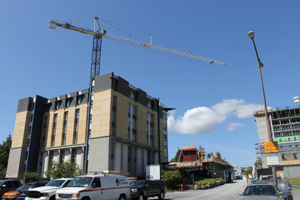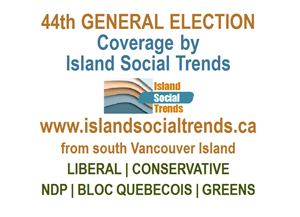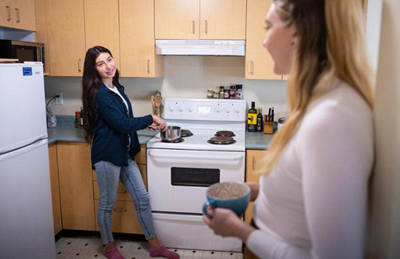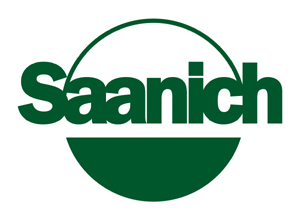
Tuesday August 17, 2021 | VICTORIA, BC [Updated at 1:15 & 2:38 pm]
by Jalen Codrington | Island Social Trends | Editor: Mary P Brooke
Students at the University of Victoria (UVic) this year are getting a lesson in something they didn’t sign up for – housing challenges during a pandemic.
One glance on any of the university’s off-campus housing pages, and it’s clear that hundreds of students are still scrambling to find living accommodations – with just three weeks until the start of the Fall 2021 semester.
The university offers student housing information, saying that their Residences Services department provides housing services, programming and education to the on-campus student community. They currently house 2,300 beds and 181 family housing units.
“UVic residences are more than just a place to live—we offer a supportive community where you can thrive,” says the UVIC housing page. They list off that they offer accommodation to undergraduate students, graduate students, Indigenous students, summer students, students with special housing needs, and students with families.
Student enrollment is 19,275 this year, down from around 22,000 usually expected at the start of a fall semester. This is a lingering impact from the COVID pandemic scenario that is affecting all aspects of society and economy; some students perhaps found remote-learning in 2020-2021 to be not what they wanted from university life, and others may still be afraid to return to campus in the COVID fourth wave (though BC public health is asking everyone on campuses to be fully vaccinated — i.e. two shots — before returning to campus).
Comments from students & parents:
In a survey about student renters — conducted on Facebook (on behalf of Island Social Trends) — of 666 respondents, 64 per cent responded that they had yet to find housing, or had given up on the search completely. That’s almost 430 students who are in a very desperate situation – and that’s only the people who responded to the survey.
Devin, a first year Recreation and Health Studies student, had deferred his 2020/2021 semester to hold out for in-person classes, which he felt would better suit his learning style. Now, he is unsure whether he will be able to find housing on the island.
“I’m currently checking classifieds and messaging owners multiple times a day, and have begun applying for places that are way out of my price range, just to get some assurance that I’ll have a place to stay,” he told to Island Social Trends via email. “The whole experience has been a major stressor for me.”
This difficult situation comes after a number of students deferred their 2020/2021 school year to avoid online courses during the pandemic. Now, with this backlog of ‘first years,’ the university Residence Services received well over 2,400 housing applications, while having only 1,975 beds to spare.
To exacerbate the problem, two older residence buildings – Margaret Newton and Emily Carr – have been demolished while the university constructs new student housing, scheduled to be ready in 2023. This has led to the displacement of 162 students, with the beds of those buildings now unavailable.
No guarantee this year:
In response to these issues, UVic abandoned its usual residence guarantee to first-year students in favour of a “lottery program,” which gave priority to those who had deferred their schooling in the 2020/2021 year. According to the university, over 90 per cent of residence beds were reserved for first years. Graduate and law school students were placed into a separate lottery.
The university, however, has come under heavy fire for its management of the lottery program, particularly for waiting until June 30 to close the application portal, while still accepting deposits from students deep into the summer. Many students and parents have claimed the administration should have had a sense of their room shortage long before they stopped accepting applicants.

“It’s like airlines overbooking flights and then asking passengers to take a later plane,” wrote one parent, who prefers to remain anonymous.
Those with a lottery number above 1975 have been essentially left high and dry, with their only recourse being to navigate the uncertain options within the Greater Victoria real estate market. Landlords are frequently hesitant to rent to students, who have no previous rental references, little work experience, and to those under 19 or with no background credit. And it goes without saying, that throngs of first-years are creating an excess of competition for existing off-campus renters.
Sarah, a third-year chemistry student at UVic, told Island Social Trends about the stress the search has had on her mental health. “I would check online for new postings every morning before work, then a couple times at work, and then once when I got home. I did this routine for probably four months straight. Near the end, the stress was starting to largely impact work for one of my roommates and I. Having to take countless breaks mid-shift to email or call landlords, we were risking our jobs.”
International students are required to set up virtual showings.
Similar trends:
Universities across the country are facing similar trends as enrolment surges, with incoming students hoping for normalcy after a year of online classes and deferrals.
UVic enrolment for the 2021 fall semester is up 2.8 per cent at 19,275, versus the 18,759 from last year. Many students were eager for the on-campus experience after the pandemic had eaten away at their final years of high school, but are finding themselves again left in the dust.
A punishing market:
According to a June 2021 rental analysis report by PadMapper (an apartment-hunting website serving Greater Victoria and the BC Lower Mainland), Victoria is the fifth-most expensive city in Canada for rental accommodation. With a notable deficiency of inventory, this has been an issue for some time. Victoria’s vacancy rate of 2.2 per cent lingers below the national average of 3.2 per cent.
Capitalizing on the crisis, landlords have in many cases hiked up rent prices considerably. Bachelor suites are going for over $1,800. Basement suites with a single bathroom shared between three bedrooms are going for over $4,500, and desperate students will gladly scoop them up if it means they don’t have to commute to class from a tent.
“The increase in the amount that these landlords are now charging is disgusting,” said Sarah. “They are taking advantage of already struggling students.”
Owning is cheaper, if you can afford it:
Many parents have resorted to buying suites for their kids, as the down payment and monthly mortgage turn out to be cheaper in the long run than paying the rental prices.
Rent freeze heated up the market:
Last spring, the provincial government implemented a rent freeze to prevent landlords from further straining their renters during the financial hardships of the pandemic. The freeze was recently extended to December 31, 2021.
This freeze, however, only applies to existing leases. If even a single tenant moves out, this is considered a new lease, and the landlord can reset the rent to whatever they like.
In some cases, reasons are found to have tenants ‘move on’, so that units can be rented out for more.
According to the District of Saanich housing strategy, about half of households in that municipality (in which UVic and Camosun College campuses are located) report moderate to low income, while less than 10 per cent of supply is priced for moderate- to low-income households.
Government of BC residential tenancy information is provided online.
Gaming the system:
With low inventory and a surplus of students, some landlords are finding ways to capitalize on this situation. A 2017 report from the Vancouver Island Public Interest Research Group reported that of over 400 students interviewed, almost all of the participants stated that they had experienced illegal, unethical, or discriminatory rental practices.
In some cases, landlords run illegal suites with four or more bedrooms crammed into one a single basement, or in one half of a duplex. Many don’t provide tenants with a lease to sign, and demand payments be made in cash. This seems to go unchecked.
And the unfortunate thing – many students are not in a position to challenge this. They would prefer living in an illegal suite to living on the streets.
Sarah recounted to Island Social Trends her experience trying to find a suite in Gordon Head. A landlord she had been trying to contact since June finally set up a showing for a four-bedroom upper suite, posted for $3900 a month. She described the place as “rundown.” In August, the landlord finally got back to her, saying she was high on his priority list, and seemed the perfect fit for the place. When she arrived for the showing, there were four or five other groups there.
“Right away we knew this was a sketchy situation, but we decided to stick around anyways. We were pretty desperate.” Sarah ended up waiting over an hour for the landlord, who never showed up.
University response:
The University of Victoria did not respond to a request to comment, as this article went live.
In anticipation of a number of housing-insecure students, the university has extended its undergraduate deferral deadline to August 31 for those who were entered into the lottery.
For the surplus of students who missed out with on-campus housing, a webinar on finding housing in Victoria (from July 21) is available online. As well, the university is paying registration fees for landlords listing properties on places4students.com, a site dedicated to matching student tenants with landlords.
District of Saanich Response:
In 2020, the Saanich municipal council voted to legalize garden suites, which are defined as “detached, ground-oriented dwellings located in the rear yard of a property with a single-family house as its principal use” for long-term rental.
In addition, a proposal is currently being considered by the city council to redevelop the shopping centre at University Heights, so a building there can accommodate 597 new rental units.
In June of 2020, the District of Saanich amended its zoning bylaws to increase the number of unrelated occupants in a single dwelling to 6, up from 4. This change was made to support university students, says Erika Schade, Communications Manager at the District of Saanich.
Despite this, unrelated occupancy remains in issue in other surrounding municipalities. In Oak Bay, for example, more than three unrelated tenants under a single roof is illegal. Proponents of such laws argue that multiple unrelated occupants cause excess noise, garbage, and make parking difficult. Critics argue that such bylaws are discriminatory against low-income individuals, particularly students.
Forward from here:
For many, finding a place this year has become a full-time job. Students are considering long-term Airbnb’s, hotels, or even sleeping in their cars.
Devin says he is contemplating living with his grandparents on Salt Spring Island, and commuting to campus every morning via ferry. “…it’s the only way I can think of to keep my spot in my registered classes,” he said.
“I do hope that [the university] makes efforts going forward to avoid students facing academic hardship from not being able to attend their classes simply because they can’t find nearby housing,” said Devin.
The District of Saanich, in an email to Island Social Trends, has provided tips to help protect students against predatory landlords and scammers:
- A landlord cannot refuse to rent to a tenant based on their race, religion, marital status, family status, physical or mental disability, gender, sexual orientation, age, or source of income. More information can be found by reading the Residential Tenancy Act.
- If a house is clearly derelict, or in violation of a bylaw, you can register your own complaint with the Bylaw Office .
- Always be wary with what personal information you give to potential landlords. Landlords are allowed to ask for Social Insurance Numbers to check credit, but always be wary with who you provide your SIN to, as they can be used for identity theft.
- If a suite is suspected to be illegal, students are welcome to verify with the bylaw office prior to signing a lease. In the event that a suite is found to be illegal, the owner will be given the option to legalize the suite. If the owner refuses to, or is unable to legalize it, existing tenants will be forced to move out.
- And as always, if the landlord is ‘out of town,’ or demands a deposit prior to showing the suite, it is almost always a scam.
Provincial government trying to adjust the scenario:
Since the incoming NDP government in 2017, there has been an effort to try and free up housing for families in the Gordon Head area, and putting their commitment into building more on-campus housing.
But to do this, of course, UVic’s residences would need to accommodate a massive influx of students. Horgan’s government has promised to build 5,000 new student homes over the next six years across the province (link is from July 2020).
It seems that for now, this is a difficult intermediary phase before the housing goals can become a reality.








